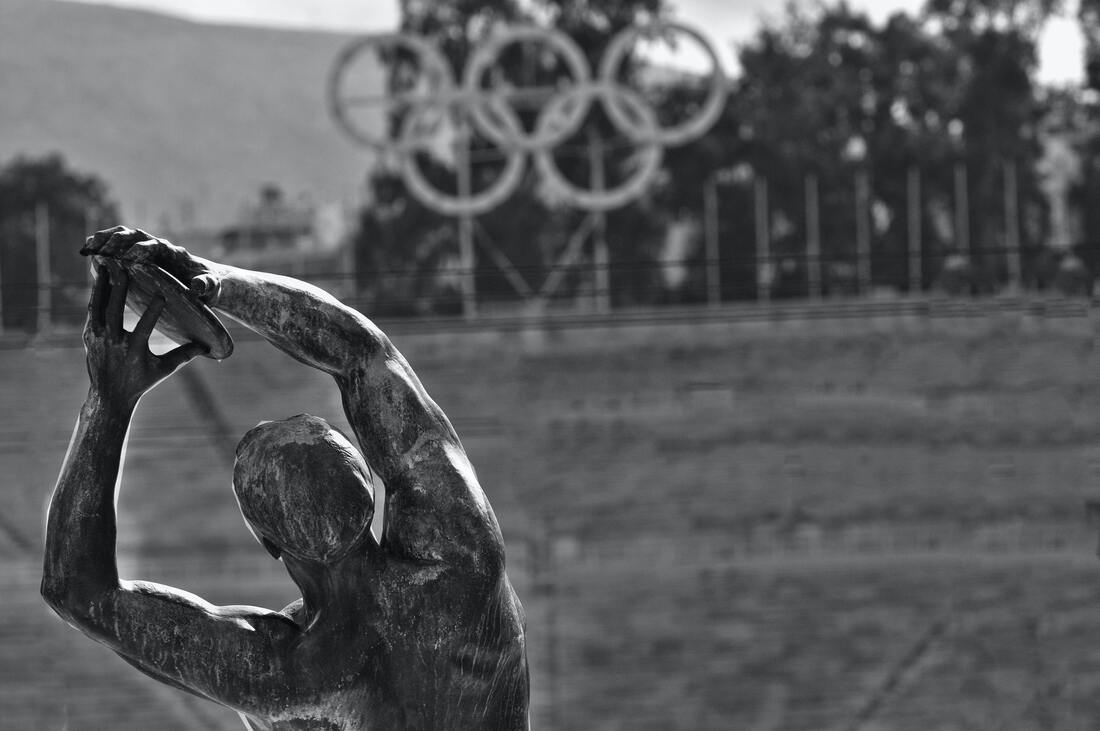In the year 1988, I turned 14 and I remember the Summer Olympics in Seoul, South Korea very well. I was a rhythmic gymnast myself, so I was really excited to watch my sport but also all the other sports; this was my chance to see the world's best in any sport, the spectacle and pomp of the event. As an athlete, and I have heard from so many others who share this view, I felt like the Olympics would be the ultimate experience; to represent your country, in your sport and win. What I remember of that Olympics was the 100-meter race. The favorites to win were the American, Carl Lewis, who had won it in the last Olympics in 1984 and Ben Johnson, the Canadian who broke the world record the year before. The final race came and Ben Johnson won in world-record time, receiving the gold medal. The headline on every news broadcast and newspaper I read declared him a hero. Then almost overnight, he wasn't. He was stripped of his gold medal when he tested positive for Stanozonol, an anabolic steroid. He went from "Ben the Hero," to "Big Bad Ben;" this was literally the words they used, as in the Big Bad Wolf in the fairytales and it stuck in my memory.
In that Olympics, rhythmic gymnastics was an official sport for the first time. I had been in the sport for 2 years already and watched every world championship video I could find like more than 20 times, sometimes in slow motion, to study how each move was performed. I knew most of the top gymnasts who would be competing in Seoul. The favorite was Bianka Panova of Bulgaria. She had won the world championships a year before, in every event - from individual all-round and the four apparatus, with the "perfect score," meaning 10.00 at that point in time. There were others who had 10.00 but not in all events like her or even with the grace she exhibited. So Bianka Panova was the favorite but that did not manifest in that Olympic games. She dropped her club in one of her routines and did not score a 10.00. This one mistake plagued her for the rest of her other routines, which were all perfect 10.00s. She ended up with no medal in 4th place. In the circle of my fellow gymnasts, we had discussions of how she didn't look so healthy; that maybe she had an eating disorder. The one who was so perfect and graceful suddenly seemed fallible, mortal even.
These are some of the stories that have stayed with me for over 30 years now. The images of these humans performing amazing feats, almost impossible at times. "Citius, Altius, Fortius"- "Faster, Higher, Stronger," the Olympic motto. We look up to them and put them on pedestals to make them heroes, so perfect and almost immortal. We make statues of them to admire and venerate, almost frozen for eternity in stone. Yet we know somewhere deep down in us that they are no more human than we are. We all wanted to love Ben Johnson, the fastest man alive in 1988 but he was toppled from this pedestal by a urine test, and he became then Big Bad Ben. Bianka Panova, who looked so perfect the year before when she was winning with perfect scores, looked skinnier and fragile. Over 20 years later she wrote an autobiography of her life training in the Bulgarian national training center, where she described mistreatment and disregard for her health by coaches. We never know what story lies behind a picture, or an athlete or a person, until we take the time to find out and even then, time may reveal more than we expect. What may seem like a blessing today, may be a curse tomorrow. Maybe a hero is only an illusion, another side of the coin that can so easily flip.
I am reminded by a story book I used to read to my kids almost every night for a while when they were younger. It's called Zen Shorts" by John J. Muth. He tells a story, "The Farmer's Luck," in this book, which is an old Daoist story and can also be found in Zen Buddhist teachings. It goes like this:
'There was once an old farmer who worked his crops for many years. One day his horse ran away. Upon hearing the news, his neighbors came to visit.
"Such bad luck," they said sympathetically.
"Maybe," the farmer replied.
The next morning the horse returned, bringing with it two other wild horses.
"Such good luck!" the neighbors exclaimed.
"Maybe," replied the farmer.
The following day, his son tried to ride one of the untamed horses, was thrown off, and broke his leg. Again, the neighbors came to offer their sympathy on his misfortune.
"Such bad luck," they said.
"Maybe," answered the farmer.
The day after that, military officials came to the village to draft young men into the army to fight a war. Seeing that the son's leg was broken, they passed him by.
"Such good luck!" cried the neighbors.
"Maybe," said the farmer.'
Reference
Muth, John J. (2005): Zen Shorts. New York, USA: Scholastic Press
Image Olympic Figure by Frans van Heerden on pexels.com


 RSS Feed
RSS Feed